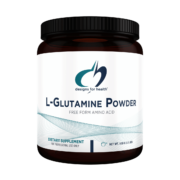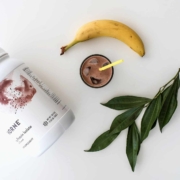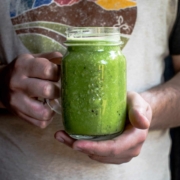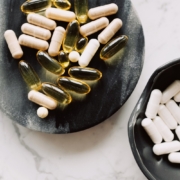Most of us know about vitamin C as a defence against colds and flu, but it’s much more than that. The science behind this critical antioxidant shows that it’s vital for many processes in our bodies and for maintaining good health.
As the temperature drops and sunlight wanes, the misery of the sniffles season begins.
According to the Centers for Disease Control and Prevention (CDC) [1], “Common colds are the main reason that children miss school and adults miss work. While most colds tend to go away by themselves, the flu kills an estimated 250,000 to 500,000 people worldwide yearly.”
Once a virus invades your body, your immune system kicks into gear to fight off the invader. Many people load up with vitamins, particularly vitamin C, to boost their immune system once they get sick.
That may be why vitamin C is the most widely used vitamin in the world. In the U.S, it’s the third most used vitamin (after multi-vitamins and vitamin D) of the 76% of adults who take dietary supplements, according to the CRN 2017 Survey on Dietary Supplements [4].
But it’s far better to support your immune system daily to help reduce the impact of cold and flu season. We take a holistic health approach at Human Performance Hub and always advocate prevention instead of just taking a ‘pill for an ill or only treating symptoms once you get sick.
As the saying goes, “the best defence is a good offence”, especially regarding your immune system.
So what is vitamin C?
Vitamin C, also known as ascorbic acid or L-ascorbic, is a water-soluble vitamin. Its water-soluble properties mean that your body can’t store it, so it eliminates excess amounts in your pee. To provide a continuous supply, you have to replace vitamin C in your body every day.
While many animals produce vitamin C naturally in their bodies, primates and humans do not. The only way we can get this vitamin into our bodies is through external sources, like food and dietary supplements.
Even though our bodies cannot produce vitamin C, it’s essential to life. Without it, you would develop scurvy, a disease that killed millions of sailors between 1500 and 1800. Although scurvy is rare today because we know how to prevent it, signs of scurvy can appear within one month of little or no vitamin C intake (below 10 mg/day), according to the National Institutes of Health [3].
The unique benefits of vitamin C
While many people associate vitamin C with cold prevention, it does much more than that.
Research has shown that adequate daily vitamin C intake can prevent infections and reduce their severity and duration [2].
And boosting your immune system with vitamin C isn’t just crucial for colds and flu—it’s also one of the best ways to prevent other diseases from forming, including the other significant C—cancer.
That’s because vitamin C is a powerful antioxidant. No doubt you’ve heard of antioxidants and their health benefits.
In a nutshell, antioxidants help break down free radical cells produced in our bodies. While free radical cells are a fundamental part of our immune system, they can build up over time and damage the healthy parts of your body. One of the primary functions of some of your immune cells is to seek out and destroy harmful cells before they can get started and cause severe damage.
The good news is that you can protect yourself from the damaging effects of free radicals through diet and vitamin C supplementation.
Vitamin C aids in many vital processes in your body:
- Protects against oxidative damage caused by harmful free radicals
- Promotes the healing of wounds, growth and repair of tissues in all body parts
- Produces and maintains collagen needed for healthy bones, skin, teeth, gums, cartilage, tendons, ligaments, and blood vessels
- Increases blood flow in the body, aiding recovery and general health
- Metabolises Tryptophan (a brain chemical)
- Helps Iron absorption
- Maintains normal blood cholesterol levels
- Metabolises fat
Supplementing higher doses with vitamin C when you’re training can also help recovery:
- Lowers post-workout cortisol
- Reduces muscle inflammation and soreness after and during a workout
- It allows muscles to restore and regain strength by metabolising protein better
- Heals tissues by helping to produce collagen
Sources of vitamin C
The only way to get your body’s vitamin C needs is through food and dietary supplementation. As a general rule, the better and more nutrient-rich your diet is, the fewer supplements you need.
The highest vitamin C-rich food sources are in fruits and vegetables like these:
- Citrus fruits (oranges, lemons, grapefruit), strawberries, cantaloupe, papaya, kiwi, goji berries
- Vegetables including red and green pepper, broccoli, cauliflower, baked potatoes, tomatoes, leafy greens
In a perfect world, we ccansatisfy our nutritional needs through our diet. Eating real food, ideally organically grown to avoid pesticide exposure, would be the most appropriate way to ensure yyou getthe nutrients your body needs.
However, with the advent of industrial farming, pollution and heightened stress levels, food no longer provides everything we need. Quality supplementation is theonly sensible way to meet the body’s demands for vitamin C
Clinical recommendations from the National Institutes of Health confirm this: “achieve optimal health and avoid several diseases; we suggest that vitamin C supplementation is required” [5].
The great thing about Vitamin C supplements is that they’re readily available to meet the body’s needs. They also come in various forms, including.
- Capsules and tablets
- Liquids
- Dissolvable powders
- Intravenous (IV)
The best type of vitamin C supplementation for you depends on your lifestyle, health goals, and of course, your preference.
Are you getting the vitamin C you need?
Everyone’s dietary needs differ based on many factors, including lifestyle, diet, medications, etc. Vitamin C recommended guidelines vary from country to country and are influenced by other variables such as age, gender, lifestyle, activity level, and individual health markers.
According to the National Institutes of Health (NIH) [3], the Recommended Daily Allowance (RDA) of vitamin C daily allowance for adults is:
- Men, 90 milligrams per day
- Women, 75 milligrams per day
- For pregnant women, 85 milligrams per day
- Breastfeeding women, 120 milligrams per day
RDA numbers have increased over the years, but they only represent the amount necessary to avoid health problems relating to vitamin deficiency. Higher dietary supplements can be beneficial for protection or treatment against some diseases or if you’re trying to address a particular health goal.
Research and some health professionals suggest that 1,000 to 3,000 milligrams are a good starting point for supplementation taken throughout the day, no more than 1,000 milligrams at a time.
The best way to determine your health markers and know exactly what you require is to take a nutrient test. Once you have your results, you’ll kunderstandwhat vitamin or other nutrient deficiencies or imbalances you may have and how to correct them. Human Performance Hub offers first-class private laboratory tests ttohelp you understand your unique needs.
Partners in Health
Our mission at Human Performance Hub is to support you in your health and wellness goals. Supplementation is one of the core pillars we consider necessary for optimal health, along with nutrition, exercise, mindset, and recovery.
While it’s clear that vitamin supplementation can benefit your health, you have to supplement the right way. And not all supplements are created equal.
Human Performance Hub only endorses and recommends the highest quality supplements available. We work with the world’s leading suppliers of dietary supplements to provide you with the best products using superior ingredients.
We’re here to help if you have questions or want advice about supplements, nutrition or training. Please book a consultation.
We offer a variety of vitamin C supplements with several unique formulations. You can get 10% off the following products using coupon vitaminc10 at checkout.
Please note that this offer expires on 17.12.2018 and can not be used with other coupons.
Human Performance Hub Vitamin C Complex Drink 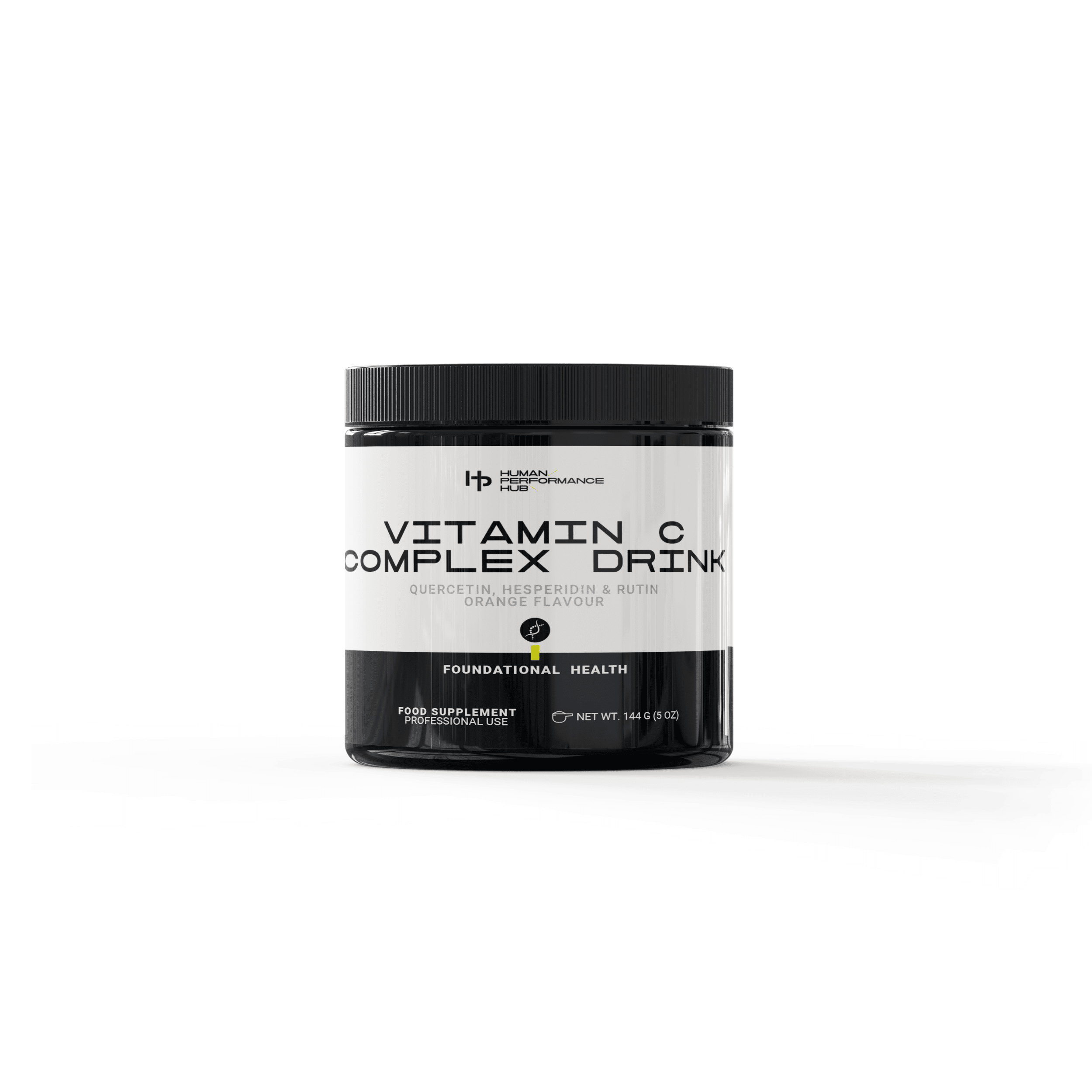
Thank you for being part of our journey – stay tuned for more updates!
Disclaimer
Always speak with your physician or another healthcare professional before making any nutritional & lifestyle changes or before taking any nutritional supplement. For more information, please view our terms & conditions.
References
- Centres for Disease Control and Prevention (CDC) Link: https://www.cdc.gov/features/rhinoviruses/index.html
- Hemilä H. Vitamin C and Infections. Nutrients. 2017;9(4):339. doi:10.3390/nu9040339 Link: https://www.ncbi.nlm.nih.gov/pmc/articles/PMC5409678/
- National Institutes of Health, Vitamin C factsheet https://ods.od.nih.gov/factsheets/VitaminC-HealthProfessional/
- Dietary Supplement Usage Increases, Council for Responsible Nutrition Link: https://www.crnusa.org/newsroom/dietary-supplement-usage-increases-says-new-survey
- National Institutes of Health, Vitamin C: is supplementation necessary for optimal health? https://www.ncbi.nlm.nih.gov/pubmed/19032072


